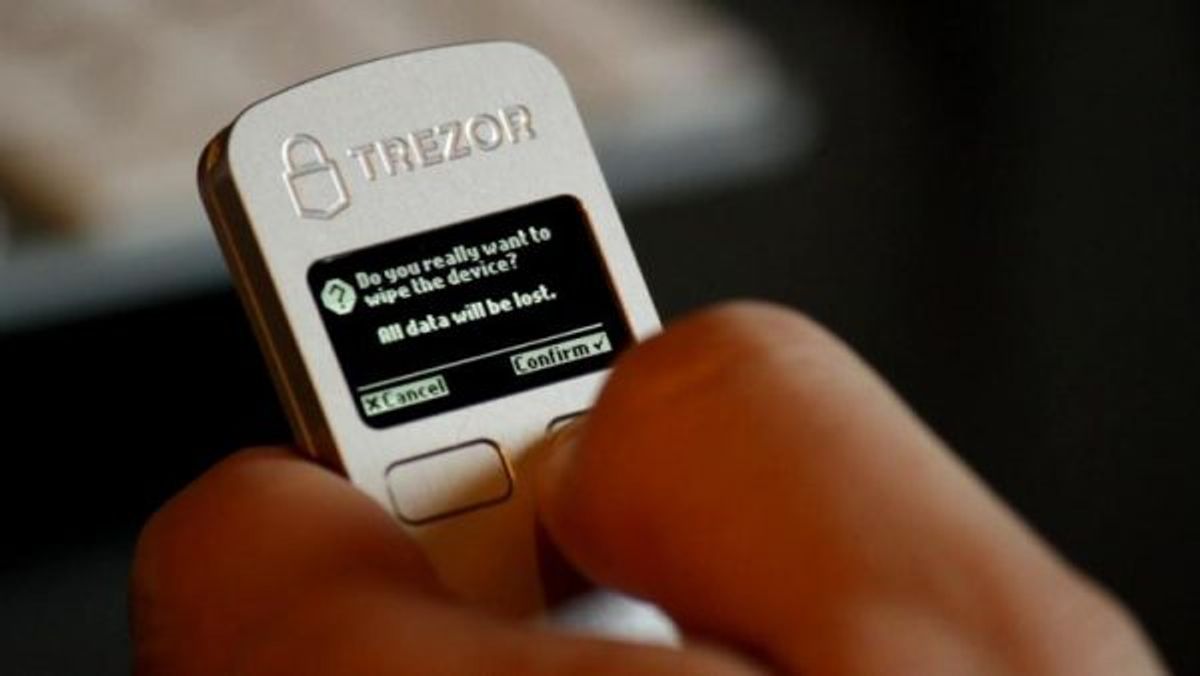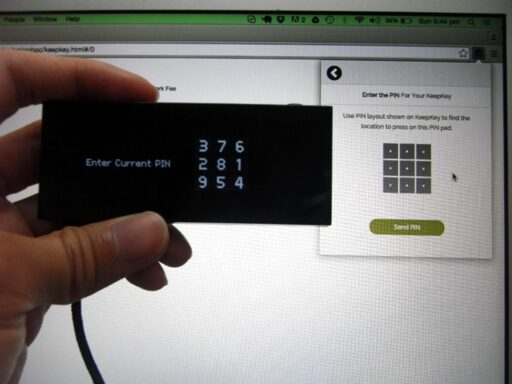Choosing the right crypto wallet is crucial for securely managing your digital assets. With a myriad of options available, it’s essential to understand the various types of wallets and the security features they offer. This article will guide you through the top considerations to ensure you find the most secure crypto wallet that suits your needs.
Key Takeaways
- The ideal crypto wallet balances security with convenience, offering features like air-gapped security, two-factor authentication, and multi-signature support.
- Hardware wallets, such as the Ledger Nano S, are recommended for enhanced security, as they provide cold storage solutions that are less vulnerable to online threats.
- It’s important to assess the reputation and community trust of wallet providers, as well as to stay vigilant for red flags that may indicate scams.
- Look for wallets that support seamless integration with exchanges and third-party apps, ensuring a smooth transaction experience now and compatibility with future developments.
- While premium security features may come at a higher cost, there are budget-friendly wallets that do not significantly compromise on safety, provided they meet essential security standards.
Understanding Different Types of Crypto Wallets

Comparing Hardware and Software Wallets
When venturing into the world of cryptocurrencies, one of the first decisions you’ll face is choosing between hardware and software wallets. Hardware wallets, such as Ledger or Material Bitcoin, are physical devices that store your private keys offline, providing a fortress-like level of security. They are akin to a safe deposit box for your digital assets, often resembling USB sticks or metallic cards.
On the other hand, software wallets like MetaMask and Trust Wallet are applications that run on your internet-connected devices. These hot wallets are more convenient for daily transactions and interacting with decentralized applications. However, they are more vulnerable to online threats due to their constant connection to the internet.
Compatibility with hardware wallets is a crucial factor to consider. A software wallet that can integrate with a hardware wallet offers a blend of security and convenience, allowing you to transfer assets between hot and cold storage as needed.
Here’s a quick comparison to help you weigh your options:
- Hardware Wallets: Maximum security, offline storage, higher cost, less convenient for frequent transactions.
- Software Wallets: More convenient, suitable for active trading, lower security, often free or low cost.
Evaluating Security Features of Various Wallets
When choosing a crypto wallet, security features are paramount. Wallets that offer two-factor authentication (2FA), biometric locks, and multi-signature support provide layers of protection against unauthorized access. Open-source code is another critical factor, as it allows for community scrutiny and ongoing improvements.
Wallets with robust security protocols for transactions, such as transaction proof checking, are highly recommended. Users should also consider the flexibility of transaction fees, which can affect the speed of transaction completion.
The ultimate goal is to find a wallet that aligns with your security needs while also fitting your usage patterns and investment style.
Here’s a quick comparison of key security features to consider:
- Safety: Look for wallets with multi-factor authentication, biometric security, and strong transaction protocols.
- Features: Prioritize wallets with a wide range of tradable assets and additional functionalities like staking.
- Cost: Consider the initial investment and ongoing transaction fees, especially for hardware wallets.
Pros and Cons of Hot vs. Cold Storage Solutions
When it comes to securing your cryptocurrency, the choice between hot and cold storage solutions is pivotal. Hot wallets connect to the internet for easier access, facilitating quick transactions and active trading. However, this convenience comes with heightened risks of cybersecurity threats due to their online nature.
On the other hand, cold wallets offer enhanced security by keeping your crypto keys offline, significantly reducing the risk of online attacks. While transactions may take longer and these wallets can be less convenient for daily use, they are often recommended for storing large holdings of cryptocurrency.
Here’s a quick overview of the pros and cons:
-
Pros of Cold Wallets:
- More secure due to offline storage
- Supported by many hot wallets for flexibility
-
Cons of Cold Wallets:
- Slower transaction times
- Recovery can be difficult without a digital key backup
-
Pros of Hot Wallets:
- Quick access for daily transactions
- Often low cost or free
-
Cons of Hot Wallets:
- Higher risk of cybersecurity threats
- Vulnerable to hacking risks
Finding the right balance between ease of use and security is key. The best approach might be a mix of hot and cold storage, depending on your transaction frequency and the amount you’re looking to secure.
Key Security Features to Look For

Importance of Two-Factor Authentication
In the realm of digital asset security, two-factor authentication (2FA) is a critical line of defense. By requiring a second form of verification beyond just a password, 2FA dramatically reduces the likelihood of unauthorized access. Typically, this involves receiving a unique code on a device you own, such as a smartphone, which must be entered to complete the login process.
Two-factor authentication is not just an additional hurdle for potential intruders; it’s a fundamental security practice that can prevent the majority of hacking attempts.
While the concept is straightforward, the implementation of 2FA can vary. Some wallets may send codes via SMS or email, while others use dedicated authentication apps or hardware tokens. It’s essential to choose a method that balances convenience with security, keeping in mind that methods like SMS can be vulnerable to certain types of attacks.
Remember to regularly update your software, including your wallet application and any associated 2FA apps. Updates often contain security enhancements and patches for vulnerabilities that could be exploited by attackers.
The Role of Multi-Signature Support
Multi-signature support in crypto wallets introduces a critical layer of security by necessitating the approval of multiple parties before a transaction can be executed. This feature is akin to a system of checks and balances, ensuring that no single individual can unilaterally move funds, which is particularly beneficial for organizations or shared accounts.
- Multi-signature wallets require authorization from multiple keys, which can be distributed among different users or devices.
- They are ideal for shared funds, businesses, or any situation where joint control over assets is desired.
- While adding an extra step to transactions, the security benefits often outweigh the inconvenience.
The choice to use a multi-signature wallet should align with your investment style and risk tolerance. Seasoned investors or those with significant holdings may find the additional security indispensable, whereas casual users might prioritize ease of use with the option for enhanced security through multi-signature features.
It’s important to note that multi-signature wallets can vary in their implementation and complexity. Some may offer adjustable settings for transaction fees, allowing users to balance cost with transaction speed. As you consider a wallet with multi-signature support, weigh the benefits of increased security against the potential for added complexity in managing your transactions.
Understanding Open-Source Software and Hardware Isolation
Open-source software in hardware wallets is a cornerstone of security and transparency. Trezor hardware wallets, for instance, are built on open-source code, allowing for community-driven scrutiny and improvements. This collaborative approach ensures that vulnerabilities are identified and addressed promptly, enhancing the wallet’s defenses.
Hardware isolation, on the other hand, refers to the practice of keeping your private keys completely offline. Non-electronic hardware wallets offer a level of offline storage that is redefined, creating a fortress-like environment that is impervious to online threats. Such wallets are often designed with physical tamper-resistance, using rugged materials that are virtually indestructible.
When considering a hardware wallet, it’s essential to look for features that bolster security. EAL certifications, such as the EAL 6+ rating used by OPOLO, indicate a high level of security for the hardware components. Additional features like air-gap signing and true random number generation are critical in ensuring that transactions and private key generation are secure and resistant to hacking attempts.
Assessing the Reputation and Reliability of Wallet Providers

Researching User Reviews and Expert Opinions
When selecting a secure crypto wallet, diligent research into user reviews and expert opinions is crucial. These insights provide a wealth of information on the wallet’s performance, security features, and reliability from those who have firsthand experience or professional expertise.
- Reddit’s Favorites: Top Crypto Wallets Voted by Users. Highlights top crypto wallets based on security, user experience, and features. Offers insights for beginners to advanced users and predicts future trends in wallet technology.
To ensure a comprehensive understanding, consider the following steps:
- Investigate the provider’s history and reputation within the crypto community.
- Look for qualifications, awards, or recognitions the provider has received.
- Seek referrals or testimonials from current or past users.
- Check for any global recognition or presence in the crypto space.
It’s important to balance personal anecdotes with aggregated data and expert analysis to form a well-rounded view of each wallet’s strengths and weaknesses.
Identifying Red Flags and Avoiding Scams
In the ever-evolving landscape of cryptocurrency, vigilance is your first line of defense against scams. Phishing scams are particularly prevalent, often masquerading as legitimate requests for sensitive information. Always scrutinize emails and messages that seem out of place, and never divulge your wallet credentials or private keys to unverified sources.
Balance convenience with security. Use cold wallets for bulk investments. Compare Trezor and Ledger for personal preference. Consider user reviews when choosing a wallet provider.
Recognizing the signs of a scam can save you from financial loss and stress. Here are some red flags to watch out for:
- Unsolicited communication asking for sensitive information
- Promises of unrealistic returns on investments
- Websites or emails with slight deviations from the official domain names
- Pressure to act quickly on investment opportunities
Remember, if an offer seems too good to be true, it probably is. Take the time to research and verify everything. A cautious approach will serve you well in the dynamic and sometimes murky waters of cryptocurrency.
The Significance of Community Trust in Wallet Selection
In the realm of cryptocurrency, community trust is an invaluable asset for any wallet provider. A strong community backing not only reflects a wallet’s reliability but also its commitment to user satisfaction and security. When a wallet is embraced by a robust community, it often indicates a history of transparency, consistent updates, and a responsive support system.
To gauge community trust, consider these points:
- Look for active forums and social media presence.
- Check for regular engagement between the provider and its users.
- Observe the frequency and quality of updates and patches.
The collective voice of a community can be a powerful indicator of a wallet’s standing in the crypto space. It’s a reflection of the provider’s dedication to fostering a secure and user-friendly environment.
Remember, the crypto landscape is dynamic, and a wallet’s ability to adapt and innovate is closely tied to the support and feedback from its users. Wallets that are highly regarded by the community are often those that prioritize user needs, offering features and services that resonate with their audience.
Integrations and Compatibility with Crypto Services

Exchange and Third-Party App Support
The integration of exchange and third-party app support in crypto wallets significantly enhances user experience by providing seamless transactions and a more comprehensive crypto management ecosystem. Wallets with built-in exchange features allow for swift currency conversions, often without the need to navigate away from the wallet’s interface. This convenience is exemplified by wallets like Exodus, which supports over 300 crypto-assets and includes an in-built exchange, bolstering its appeal to beginners seeking a streamlined crypto experience.
- Interoperability with various blockchain networks is another critical aspect. Trust wallet, for example, not only facilitates easy coin swaps but also enables interaction with decentralized applications (dApps) across multiple networks such as Ethereum and BSC.
Security measures such as SSL encryption, as utilized by Exodus, ensure that data remains protected during transactions, which is paramount when integrating with external services.
However, it’s essential to be cautious of wallets that offer anonymity with no KYC (Know Your Customer) requirements. While they may provide privacy, they could also pose risks and limit the user’s ability to recover funds if issues arise. As highlighted by Techopedia’s review of anonymous wallets, the absence of identity verification can be a double-edged sword.
Ensuring Seamless Transaction Experience
A seamless transaction experience is crucial for the usability and satisfaction of any crypto wallet user. Compatibility with various blockchains and services ensures that users can perform transactions without unnecessary hurdles or delays. Wallets that support EVM (Ethereum Virtual Machine) blockchains, for instance, provide a wide range of interoperability options, allowing users to interact with numerous decentralized applications and services.
Wallets with integrated exchange services, such as swap features, enable users to exchange cryptocurrencies directly within the wallet interface. This not only simplifies the process but also enhances security by minimizing exposure to external platforms.
Additionally, wallets that employ SSL encryption for data in transit protect against the interception of sensitive information during transactions. This security measure is a vital component of a wallet’s ability to ensure a seamless and secure transaction experience. Here are some extra safety features that contribute to a smooth transaction process:
- EAL 5+ certification for independent security evaluation of hardware components.
- Air-gap signing to sign transactions offline, reducing online vulnerabilities.
- True random number generation to secure private key creation.
It’s important to consider these features when selecting a wallet, as they directly impact the ease and security of your crypto transactions.
Future-Proofing: Wallets That Grow with the Crypto Ecosystem
In the ever-evolving world of cryptocurrency, selecting a wallet that can adapt and grow with the ecosystem is crucial. The best wallets are those that not only meet current needs but also anticipate future trends and technologies. They should seamlessly integrate with new coins, protocols, and services as they emerge.
When considering future-proofing, it’s essential to look for wallets that are regularly updated with the latest security features and enhancements. This commitment to innovation ensures that your investment remains protected and your experience remains relevant.
Here are some key considerations for ensuring your wallet is future-proof:
- Regular updates and support for new cryptocurrencies and tokens
- Compatibility with emerging blockchain technologies
- Integration with decentralized finance (DeFi) platforms and other crypto services
- A roadmap that outlines future developments and feature additions
By prioritizing these aspects, you position yourself to navigate the crypto landscape with confidence, ready to take advantage of new opportunities as they arise.
Cost vs. Security: Finding the Right Balance

Analyzing Initial Investment and Long-Term Value
When venturing into the realm of cryptocurrencies, it’s crucial to assess both the initial cost of acquiring a wallet and the long-term value it provides. The upfront investment in a secure crypto wallet can vary significantly, from free software wallets to more expensive hardware options that offer enhanced security features.
- Free or low-cost software wallets may be appealing for their convenience and minimal initial investment.
- Mid-range wallets often balance cost with improved security features.
- High-end hardware wallets provide the best security but come at a higher price point.
Evaluating the long-term value involves considering the wallet’s ability to adapt to new cryptocurrencies and security threats. A wallet that may seem cost-effective initially could become obsolete if it fails to evolve with the rapidly changing crypto landscape. Conversely, a more expensive wallet might prove to be a wise investment if it offers continuous updates and robust security measures.
It’s essential to remember that investing in a secure wallet is part of a broader strategy to protect your digital assets. The right wallet not only safeguards your investment but also provides peace of mind.
When to Opt for Premium Security Features
Deciding when to invest in premium security features for your crypto wallet can be pivotal in safeguarding your digital assets. The additional cost associated with high-end security measures is often justified by the enhanced protection they offer. For instance, wallets with EAL 5+ certification provide a level of security that has been independently verified, ensuring robust defense against unauthorized access.
Consider premium features when:
- You’re managing a substantial amount of cryptocurrency.
- Your portfolio includes a variety of digital assets, necessitating diverse security protocols.
- You require advanced security measures, such as air-gap signing, to mitigate online threats.
- The integration with exchanges and third-party apps is crucial for your transaction needs.
While the initial investment for wallets with high-security features like Ellipal’s air-gapped security can be significant, the long-term value and peace of mind they offer are invaluable. Remember, the safest place to keep your crypto is in a wallet that aligns with your security needs and usage habits.
Budget-Friendly Wallets: Do They Compromise on Safety?
When it comes to securing your digital assets, the cost of a crypto wallet can be a significant factor for many users. Budget-friendly wallets do not necessarily compromise on safety, but it is crucial to understand what you might be foregoing in terms of security features or build quality.
-
Pros:
- Often free or low-cost.
- Accessible and user-friendly, especially for beginners.
-
Cons:
- May lack advanced security features.
- Potentially more vulnerable to online threats.
While high-end wallets like the Ledger Nano X or Trezor Model T are praised for their robust security measures, there are affordable options that still maintain a strong level of protection. It’s important to assess whether a wallet’s security measures align with your needs and the value of the assets you intend to store.
The key is to find a wallet that offers the essential security features without unnecessary extras that inflate the cost. Prioritize wallets that provide two-factor authentication, a secure PIN code, and regular software updates.
Remember, the most expensive option is not always the most secure. By carefully evaluating the security features and the reputation of budget-friendly wallets, you can make an informed decision that balances cost with peace of mind.
Conclusion
In the quest for the most secure crypto wallet, it’s evident that there is no one-size-fits-all solution. The ideal wallet for you hinges on a balance between security, convenience, and functionality. Hardware wallets like the Ledger Nano S stand out for their robust security measures, but it’s crucial to consider the wallet’s reputation, ease of use, and compatibility with your investment strategy. Remember, the safety of your digital assets is paramount, and taking the time to choose the right wallet is a step towards ensuring peace of mind in the dynamic world of cryptocurrency.
Frequently Asked Questions
What are the main types of crypto wallets available?
Crypto wallets come in various forms, including hardware wallets, which offer offline storage for enhanced security, and software wallets, which are accessible online. Each type has its own security features, with hardware wallets like the Ledger Nano S being considered more secure due to their cold storage capabilities.
What security features should I look for in a crypto wallet?
Look for crypto wallets with robust security features such as two-factor authentication, multi-signature support, and hardware isolation for cold wallets. Open-source software can also add a layer of transparency and security.
How do I assess the reputation of a crypto wallet provider?
Research user reviews, expert opinions, and community feedback to gauge the reputation of a crypto wallet provider. Avoid providers with a history of security breaches or those that exhibit red flags such as lack of transparency or unrealistic promises.
Are expensive crypto wallets always more secure?
Not necessarily. While more expensive wallets like Ellipal with air-gapped security features offer high security, there are also budget-friendly wallets with strong security protocols. It’s important to analyze the cost versus security to find the right balance for your needs.
Can I trust user-friendly mobile wallets for security?
User-friendly mobile wallets can be secure, but it’s crucial to ensure they have adequate security measures in place, such as biometric authentication and multi-signature support. Always opt for wallets with a strong track record and positive reviews.
What is the safest place to keep my crypto?
The safest place to keep your crypto is typically a hardware wallet, also known as a cold wallet, which stores your private keys offline, away from potential online threats. The Ledger Nano S is recommended for its high degree of security among hardware wallets.





